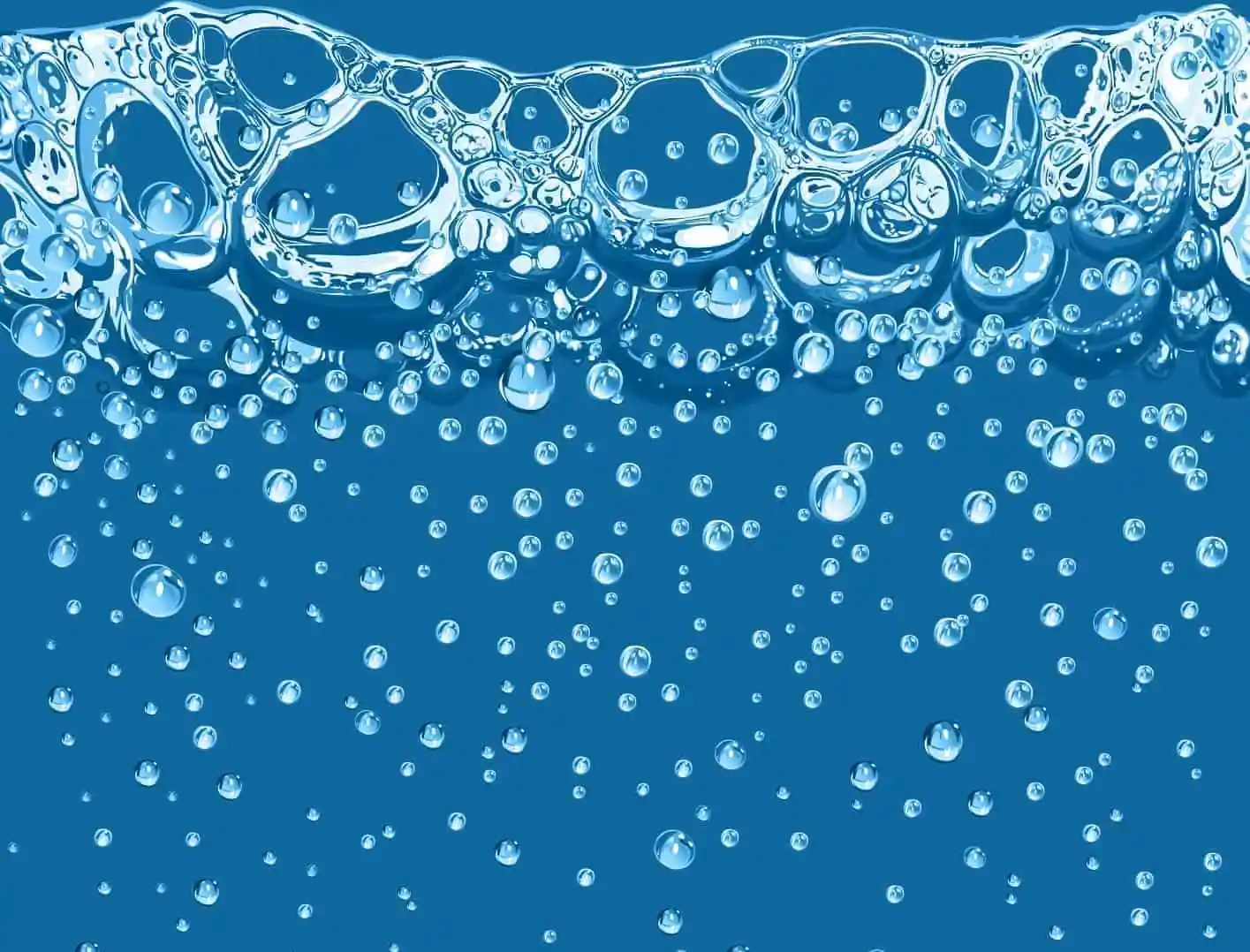If a hot tub has too much chlorine it can not only damage the unit…

Salt Water vs Chlorine Hot Tubs: Which One Is Better for Your Family?
There are pros and cons of having salt water Vs. chlorine hot tubs. This article walks you through the benefits of each type. Learn More!
The hot tub is the epitome of relaxation for a number of families. Hot tubs can offer true rejuvenation at home after a long day and allow for home spa days. Deciding to get a hot tub can be an exciting time but it begs so many questions. Is a Salt Water or Chlorine hot tub a better option to get for your family? The differences are vast when they are considered as maintenance can be completely different. Making an educated purchase is not something that you are going to regret. The following are the differences between salt water vs chlorine hot tubs.

Why Choose a Hot Tub?
Whichever option you choose, a hot tub is the ultimate way to relax as it can be like sitting in a warm bath while being massaged. The jets in a hot tub are important especially if you are trying to use it for therapeutic reasons. Being able to hit the hot tub after a long day of sitting at a desk can provide relief to your back and neck.
Entertaining is another great aspect of owning a hot tub. People love to soak in the hot tub especially at night. You might have family visiting that love the hot tub so much they do not want to leave.
The true benefit is that it gives you something to do that is relaxing or entertaining for a minimal cost per month. Hot tubs continue to become more efficient and easy to use. Technology like heating the tub from your phone also exists if you are a tech-savvy homeowner.
Key Differences at a Glance
When comparing a salt water hot tub vs chlorine, understanding the core differences can help you make an informed decision. Both systems effectively sanitize your hot tub, but their approaches to maintenance, cost, and comfort vary significantly. The table below outlines the primary distinctions between a saltwater vs chlorine hot tub, addressing common questions like “what’s better salt water hot tub or chlorine” and “difference between salt water and chlorine hot tub.”
| Feature | Salt Water Hot Tub | Chlorine Hot Tub |
|---|---|---|
| Sanitization Method | Converts salt to chlorine via a generator | Direct addition of chlorine (liquid or solid) |
| Maintenance | Less frequent; replace cartridge 3 times/year | Weekly testing and chemical adjustments |
| Cost | Higher upfront, lower long-term chemical costs | Lower upfront, higher ongoing chemical costs |
| Skin and Eye Comfort | Gentler, no strong smell, softer water feel | Can irritate skin/eyes, noticeable chlorine odor |
| Durability | Risk of corrosion from salt | Less corrosion risk, potentially longer-lasting |
Salt Water Hot Tubs
Over the past 15 years, salt water hot tubs have become increasingly popular; however, they are not without their setbacks. Below are some things to consider if you’re interested in salt water for your hot tub.
- Salt water hot tubs require a special cell that converts the salt (NaCl) into a gentler form of chlorine (Cl). Producing chlorine this way leaves you feeling refreshed after getting out of the tub and does not dry out your skin like regular chlorinated water can. It also does not create a chlorine smell that could potentially linger on your skin afterwards.
- Water conservation is a big deal to consumers as it can help them save money. Reducing the amount of waste is important to eco-friendly individuals. Salt water tubs tend to evaporate slower which may mean less frequent filling.
- Easy to clean as debris floats to the top of the pool. With this being said, you should cover your hot tub when it is not in use.
- While chlorine is generated as needed, alkalinity, pH and calcium hardness can still fluctuate and need to be maintained. In salt water, calcium hardness tends to increase faster than in chlorine and can lead to scaly buildup in your tub and on the salt cell.
- Since saltwater hot tubs require specialty parts, it may be harder to find a knowledgeable technician should any problems arise.
- Salt cells need to be replaced every 3-5 years on average and can cost hundreds of dollars depending on the model.
For those exploring hot tubs salt water vs chlorine, salt water systems offer a unique advantage in comfort. The lower chlorine levels create a spa-like experience, making a salt hot tub vs chlorine a popular choice for those who prioritize a gentle, natural feel during their soak.
Chlorine Hot Tubs
Hot tubs with chlorine are something that a majority of people have been in at one point or another. Chlorine is well-known for killing bacteria and has been trusted around the world to so do. The benefits of having a chlorine hot tub and some drawbacks are as follows:
- Finding a dealer who offers salt cell equipped hot tubs can be difficult, whereas any hot tub can accommodate chlorine.
- Chlorine is highly effective at quickly getting rid of bacteria, though it can be easy to over treat your water.
- A hot tub maintenance professional should be able to help you balance your chemical levels, especially if they come for weekly maintenance.
- Using chlorine has a low start up cost as you do not need to have any specialty equipment.
- Chlorine levels should be tested weekly to ensure proper balance.
- Chlorinated water tends to evaporate quicker than salt water, but so long as you leave the tub covered when not in use, this should not be a problem.
When considering chlorine vs salt water hot tub options, chlorine systems stand out for their accessibility and affordability. If you’re looking for a straightforward, budget-friendly solution, a chlorine hot tub may be the better choice, especially for first-time owners.

Which Hot Tub Is Right for You?
Deciding between a salt water spa vs chlorine depends on your lifestyle, budget, and preferences. Are salt water hot tubs better than chlorine for everyone? Not necessarily—it comes down to what matters most to you. Salt water hot tubs are ideal for those with sensitive skin, as the gentler chlorine levels reduce irritation and provide a softer water feel. They’re also great for users who prefer low-maintenance systems, requiring less frequent testing and chemical adjustments. However, the higher upfront cost and potential for corrosion may deter some buyers.
On the other hand, a chlorine hot tub is perfect for those prioritizing affordability and ease of finding maintenance support. If you’re comfortable with weekly water testing and don’t mind the occasional chlorine smell, a chlorine system offers a reliable, cost-effective option. It’s also better suited for those concerned about long-term durability, as salt can corrode hot tub components over time. For those weighing salt water versus chlorine hot tub options, consider your tolerance for maintenance and sensitivity to chemicals to make the best choice.
The true benefit is that it gives you something to do that is relaxing or entertaining for a minimal cost per month. Hot tubs continue to become more efficient and easy to use. Technology like heating the tub from your phone also exists if you are a tech-savvy homeowner.
Contact Epic Hot Tubs by calling 888-884-3742, visiting our Raleigh or Durham showrooms, or filling out the form below if you’d like to know more about this versatile addition.
Contact Form
We would love to hear from you! Please fill out this form and we will get back to you shortly.
Richard Horvath
Richard has been in the hot tub & spa industry for years. As a long hot tub & swim spa owner himself, Richard has a passion for helping homeowners create their dream backyard.



